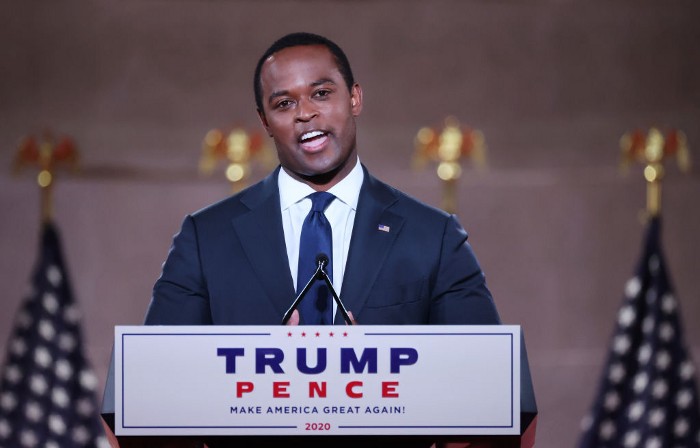

By Roula Allouch and Edward Ahmen Mitchell
What was the demographic make-up of the grand jury that decided not to indict any police officers for killing Breonna Taylor?
Did Kentucky prosecutors encourage the grand jurors to make the specific decision they settled upon, or did the jurors reach that decision without any prompting?
How much time passed between the moment police officers (supposedly) announced their presence outside Ms. Taylor’s home and the moment they started breaking through her front door?
Who, exactly, was the lone witness who verified the claim that the officers announced themselves?
What was the basis for the conclusion that Officer Brett Hankinson, who fired ten shots through a closed window, didn’t hit Ms. Taylor?
These were just some of the questions that Kentucky Attorney General Daniel Cameron failed to fully address during a Sep. 23rd press conference in which he announced that the police officers who shot and killed Breonna Taylor would not be charged with a crime for doing so.
Mr. Cameron’s announcement sparked outrage by community leaders of various races and backgrounds. As CAIR-Kentucky Board Chairwoman Waheedah Muhammad said, “We reject this unjust decision by the  grand jury and urge federal authorities to intervene in the case.”
grand jury and urge federal authorities to intervene in the case.”
To his credit, Mr. Cameron did spend considerable time answering questions from reporters about the shooting, the grand jury’s decision to return a single indictment unrelated to Ms. Taylor’s death, and the potential fallout in Louisville and across the nation.
Yet Mr. Cameron declined to fully answer several questions that might have undermined his claim that the officers who shot an unarmed woman six times in her own home were legally justified in doing so.
The answers to those outstanding questions are critical.
What if the lone “civilian” witness who claims that the officers announced themselves is biased, received some sort of benefit from law enforcement in exchange for his statement, or is otherwise unreliable?
Even if the officers truly did announce themselves at least once in the middle of the night, what if they only waited a few seconds between announcing their presence and breaking into Breonna Taylor’s home?
What if prosecutors swayed the grand jury by explicitly asking them to make their limited decision? What if no African-Americans served on the panel?
What if the “inconclusive evidence” regarding whether one of Hankinson’s shots hit Ms. Taylor is more conclusive than the attorney general claims?
In addition to dodging key questions, Mr. Cameron repeatedly deflected responsibility for his decisions to the grand jury, as if his office had no role in their conclusion.
“I think it’s important to step back and recognize that what we did was uncover all the information and facts related to the morning of March 13th, and then provided that information to the grand jury,” Cameron told reporters.
He added, “The grand jury had every piece of detail needed to make their assessments and their judgments, and ultimately their conclusion was the decision needed to be made to indict Mr. Hankinson.”
Every lawyer knows that this statement is as true as it is misleading. Any prosecutor worth his paycheck should have been able to secure a grand jury indictment in a case like this — if he truly wanted to do so.
After all, there are no judges, defendants, or defense attorneys present during a grand jury hearing. There are only prosecutors.
Prosecutors present whatever evidence they want to present, call whichever witnesses they want to call, make whatever arguments they want to make, and lead the grand jury wherever they want it to go.
Only when the prosecutors wrap up their presentation and finish making their arguments does the grand jury deliberate and make a decision. Although grand juries can choose to disregard a prosecutor’s preferences, they rarely do so.
Point being, Mr. Cameron’s office made its own decision not to pursue any indictments against the officers who killed Breonna Taylor, and then his office almost certainly led the grand jury to reach the same decision.
It’s also worth noting Mr. Cameron is refusing to publicly release the case file with all of the underlying evidence, as Kentucky Governor Andy Beshear and others have demanded.
If Mr. Cameron releases the case file, perhaps the evidence will surprise all of us by vindicating his office’s conclusions. But it’s impossible to believe Mr. Cameron while he dodges critical questions and withholds key evidence, all while actively engaging in our nation’s polarized politics.
Just last month, Mr. Cameron spoke at the GOP convention in support of a president who gleefully encourages police brutality. And during his press conference, he took a political shot at the “celebrities, influencers and activists” who have demanded charges in Ms. Taylor’s death.
Bottom line: no one can or should accept the Kentucky’s Attorney General decision. Too many questions remain unanswered and too much information remains hidden.
The only thing we can say with confidence after hearing from Daniel Cameron is that Breonna Taylor’s family is still demanding justice.
Roula Allouch is an attorney and Kentucky native who serves as chairwoman of the Board of Directors of the Council on American-Islamic Relations (CAIR).
Edward Ahmed Mitchell is a civil rights attorney who serves as Deputy Director of the Council on American-Islamic Relations (CAIR).
To sign up for our new newsletter – Everyday Injustice – https://tinyurl.com/yyultcf9
Support our work – to become a sustaining at $5 – $10- $25 per month hit the link:
